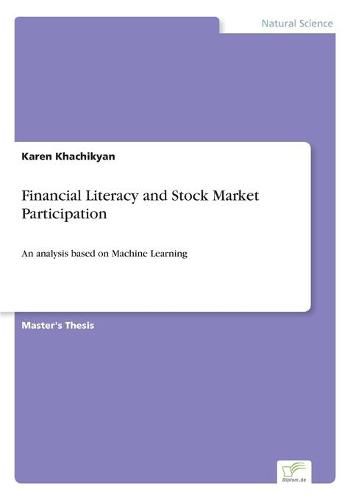Readings Newsletter
Become a Readings Member to make your shopping experience even easier.
Sign in or sign up for free!
You’re not far away from qualifying for FREE standard shipping within Australia
You’ve qualified for FREE standard shipping within Australia
The cart is loading…






This title is printed to order. This book may have been self-published. If so, we cannot guarantee the quality of the content. In the main most books will have gone through the editing process however some may not. We therefore suggest that you be aware of this before ordering this book. If in doubt check either the author or publisher’s details as we are unable to accept any returns unless they are faulty. Please contact us if you have any questions.
The goal of this Master thesis is to examine the advantages and disadvantages of advanced Machine Learning algorithms compared to traditional econometric methods. More specifically, the predictive performance, interpretability and possibilities for casual inference of various tree-based-methods will be compared to the well-established linear regression models. For this purpose, the Stock Market Participation puzzle, which was originally examined by van Rooij, Lusardi, and Alessie (2007) using OLS and IVGMM regressions, will be used for the empirical part of the thesis. The performance of each model is determined by the ROC curve and the according AUC value. Moreover, measures for variable significance are exploited like Feature importance and Permutation Feature importance, which prove the substantial role of financial literacy and income for investing. Albeit Decision Tree and Random Forest models show similar results to the linear models even after optimization, the optimized XGBoost model appears to excel in the majority of cases. This is confirmed by the Diebold-Mariano test and cross-validation.
$9.00 standard shipping within Australia
FREE standard shipping within Australia for orders over $100.00
Express & International shipping calculated at checkout
This title is printed to order. This book may have been self-published. If so, we cannot guarantee the quality of the content. In the main most books will have gone through the editing process however some may not. We therefore suggest that you be aware of this before ordering this book. If in doubt check either the author or publisher’s details as we are unable to accept any returns unless they are faulty. Please contact us if you have any questions.
The goal of this Master thesis is to examine the advantages and disadvantages of advanced Machine Learning algorithms compared to traditional econometric methods. More specifically, the predictive performance, interpretability and possibilities for casual inference of various tree-based-methods will be compared to the well-established linear regression models. For this purpose, the Stock Market Participation puzzle, which was originally examined by van Rooij, Lusardi, and Alessie (2007) using OLS and IVGMM regressions, will be used for the empirical part of the thesis. The performance of each model is determined by the ROC curve and the according AUC value. Moreover, measures for variable significance are exploited like Feature importance and Permutation Feature importance, which prove the substantial role of financial literacy and income for investing. Albeit Decision Tree and Random Forest models show similar results to the linear models even after optimization, the optimized XGBoost model appears to excel in the majority of cases. This is confirmed by the Diebold-Mariano test and cross-validation.